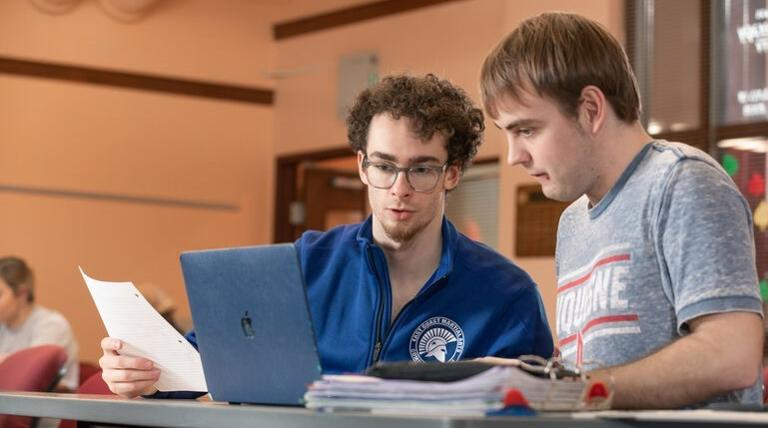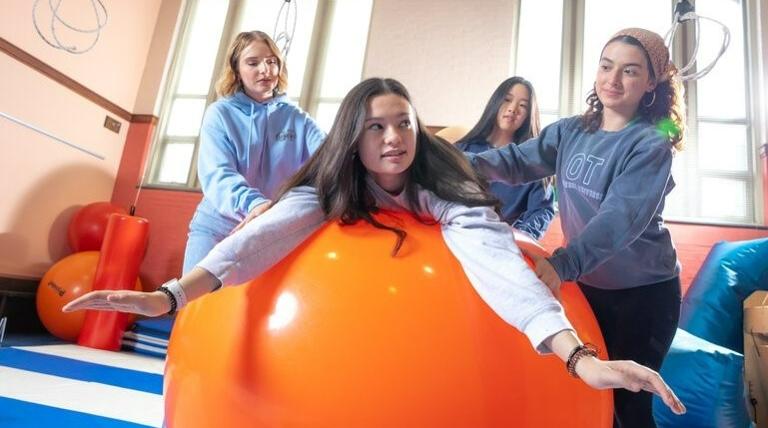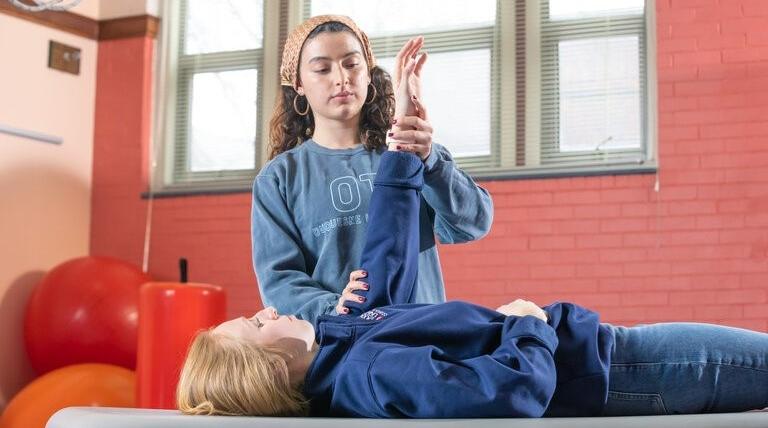What is Occupational Therapy?
Occupational therapists are experts in doing. We prescribe therapeutic occupations, including everyday life activities to support a person's performance and function in the multiple life roles they engage in at home, school, work, and community environments. Occupational therapists are trained to address physical, cognitive, psychosocial, sensory-perceptual, and other aspects of performance. Occupational therapy interventions can be designed to develop skills, prevent illness and promote health and wellness. Interventions can also rehabilitate when an illness, injury or disease results in impairment, disability, activity limitation, or a restriction in a person's ability to participate in their daily occupations. Occupational therapists work with people of all ages and ability levels in many settings. Occupational therapy services may be provided in individual or group sessions, or on a broader scale at the system or population level.
Why choose Duquesne Occupational Therapy?
Our program is designed to:
- Give you a choice. We are the only program in Western Pennsylvania that is dually-accredited to award the entry-level Master's (MSOT) and entry-level doctorate (OTD) degree. All of our students have the CHOICE of completing the MS degree or the OTD track.
- Enhance your skills. Our students complete ~80-100 hours of Community Engaged Learning- this means that our students apply their OT skills in settings that don't typically have an OT on staff such as community organizations that serve veterans, homeless youth and individuals with intellectual and developmental disabilities and more!
- Learn in Practice from the Experts. Our school has over 1,000 affiliated sites that can be used for fieldwork learning. These include nationally recognized settings inside and outside the Pittsburgh area... such as Kessler Institute for Rehab, Sheppard Pratt Health System, Nemours Children's Hospital and many more!
- Mentor you. We have 11 dedicated full-time faculty members with various expertise in areas of pediatrics, acute care, gerontology and emerging practice settings such as the criminal justice system who will provide you with mentorship from your first semester.
Experiential Learning
Active & engaged learning is a crucial aspect of occupational therapy education. Our faculty strongly embraces the concepts of Engaged and Transformative Learning and recognizes their value in developing practitioners that can be the leaders within our profession. We have integrated the core concepts of these learning theories within many aspects of our curriculum.
What Makes DU OT Stand Out From The Rest?
We are the ONLY Freshman Admit Program in Western PA
Once accepted into the OT Program, meeting academic standards means that there is NO need to re-apply in the professional or doctoral phase. Students engage in OT coursework in each level of the program.
All Duquesne OT students have a CHOICE for degree level
We are the only OT program in Western PA that offers both accredited Entry-Level Degree Programs. All students will have the option to declare your terminal degree (MSOT or OTD) during your first semester of your senior year. Students earn their Bachelor's of Health Science Degree at the end of year four, and then continue on to earn their terminal degree of choice (either MSOT or OTD).
Each program is accelerated which allows our graduates to enter the workforce at a quicker-rate. The MSOT program is complete in 4.5 calendar years, and the OTD program is complete in 5.5 calendar years.
Complaints to ACOTE require this complaint form. Information about the complaint program.
Right-Sized Cohorts allow for more Personalized Attention with Classroom Learning and Professional Development
Faculty/Student ratio in labs is no more than 1:15 which facilitates more student-centered learning. Students will have the opportunity to learn in a personalized teaching-learning environment (~30 students) from a diverse team of 11 full-time faculty who are experts in diverse teaching practices such as interprofessional education (IPE), flipped classroom, simulation, community-engaged learning and more. Several of our faculty continue to maintain clinical practice roles as direct practitioners, ensuring relevance and modernization within our classrooms and labs.
Superior Graduation Rate
The Occupational Therapy Programs at Duquesne University demonstrate strong student progression and retention rates among our cohorts. Students declare their terminal degree within the Fall semester of the 4th year in the program. OTD students begin the advanced phase of the curriculum after Level II Fieldwork. A three-year graduation rate from the Department of Occupational Therapy at Duquesne University is 97.2% for the MSOT program and 98% for the OTD program. Students who did not earn the OTD degree were successful in achieving the MSOT terminal degree and completing eligibility requirements for NBCOT certification exam.
MSOT Graduation Rate
| Graduation Year | # Started Professional Phase | # Graduated | Graduation Rate |
|---|---|---|---|
| 2022 | 7 | 7 | 100% |
| 2023 | 13 | 13 | 100% |
| 2024 | 17 | 16 | 94% |
| 3-Year Total | 37 | 36 | 3 year average 97.2% |
| 2025 | 14 | * | * |
OTD Graduation Rate
| Graduation Year | # Started in Advanced Phase | # Graduated | Graduation Rate |
|---|---|---|---|
| 2022 | 21 | 20 | 95% |
| 2023 | 22 | 22 | 100% |
| 2024 | 7 | 7 | 100% |
| 3-Year Total | 50 | 49 | 3 year average 98% |
| 2025 | 9 | * | * |
* students still enrolled in degree program
Exceptional Board Certification Pass Rate
Graduates of our program are eligible to sit for the national certification examination for occupational therapists administered by the National Board for Certification in Occupational Therapy (NBCOT). After successful completion of this exam, the individual will be an Occupational Therapist, Registered (OTR). In addition, most states require licensure in order to practice; however, state licenses are usually based on the results of the NBCOT Certification Examination. Duquesne University program results from the National Board for Certification in Occupational Therapy (NBCOT) can be found on the NBCOT website. (To locate Duquesne University results, search for Pennsylvania, then select OT Doctoral or OT Masters level Program and choose year).
Beginning in 2018, the NBCOT Board of Directors has approved the implementation of background checks as part of the exam application process. This enhancement offers the unique opportunity to apply a national standard to all entry-level practitioners in support of NBCOT's mission of public protection.
Students and prospective students are advised that a felony conviction may affect one's ability to sit for the NBCOT certification examination or attain state licensure.
Exceptional Employability
The vast majority (99%) of our graduates responding to employment surveys reported that they took their first job within 1-6 months of graduation.
Structured Faculty / Student Mentorship Program
All students in the program are assigned a faculty mentor. Semesterly meetings allow more personalized support for academic and professional growth as students progress from pre-professional, professional and doctoral phases of the curriculum.
Faculty and Student Mentorship is also uniquely available via the research project sequence. This optional 3-credit course sequence, is offered in the professional phase. Students are provided the opportunity to apply to serve as research apprenticeships and work closely with DU OT faculty in their area of scholarship. Most research students have the opportunity to disseminate their work at state and national conferences such as the American Occupational Therapy Association (AOTA), or engage in the process of writing a publication. These are some great resume builders and help make DU OT students stand-out in the job market upon graduation!
Flexibility to Supplement OT Curriculum & Engage in Study Abroad
The DU OT curriculum has space built-in to allow students to explore other interests that might augment their training as an occupational therapist; More than half of all OT students pursue a minor in fields like psychology, special education or sociology, public health, global health and notably assistive technology, which is taught by OT faculty.
Students have opportunities to study abroad for a semester in our Rome or Dublin campus (during the Spring of their 2nd year) and there are a number of short-term opportunities as well some of which are led by OT or other health science faculty.
A Plethora of Affiliated Sites for Fieldwork Education and Doctoral Capstone Experiences
Across the curriculum, DU OT Students complete 5 fieldwork experiences, which accrues over 1200 hours of clinical training as a generalist. The doctoral curriculum includes an additional 560 hours designed to develop in-depth knowledge in a focused area of study. The Rangos School of Health Sciences is affiliated with over 1,000 practice settings around the US. These include nationally recognized settings inside and outside the Pittsburgh area... such as Kessler Institute for Rehab, Sheppard Pratt Health System, Nemours Children's Hospital and many more. In collaboration with our Academic Fieldwork Coordinator, DU OT students receive access to a clinical database that allows them to search affiliated sites as well as have the opportunity to assist with setting up new affiliations to create a well-balanced and student-centered plan for experiential learning.
Numerous Opportunities for Community-Engaged Learning
A key component of our curriculum; hands-on learning with community as classroom. This means that DU OT students have unique opportunities to apply their knowledge and skills in settings that don't typically have an OT on staff such as community organizations that serve veterans, homeless youth, refugees, and individuals with intellectual and developmental disabilities. DU OT students receive direct community-based practice experience across several courses, which aim to develop unique skills in program development, grant writing and consultative skills.
Check out the winning video from the 2022 Undergraduate Research Symposium created by OT students who completed a community-engaged learning experience at Shepherd's Heart Fellowship & Veterans Home.
Student Service and Leadership Opportunities
Rangos School of Health Sciences and the Department of Occupational Therapy have a robust model for student engagement and leadership. Our Student Occupational Therapy Association (SOTA), Coalition of Occupational Therapy Advocates for Diversity (COTAD) chapter, the OT honors society Pi Theta Epsilon (PTE) chapter, and eventually a DU Alumni Association offered a number of opportunities for students to get involved in OT!
Featured content
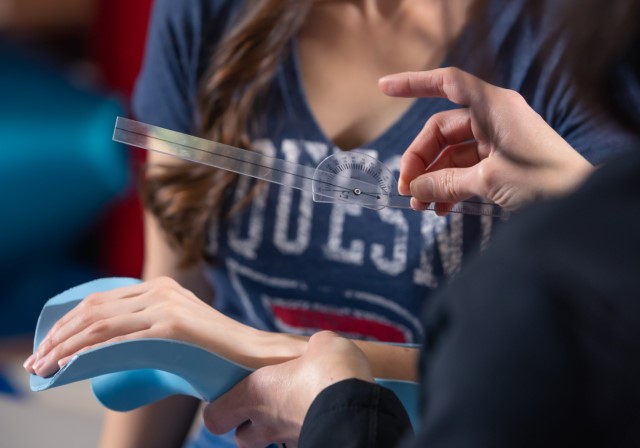
Policies and Procedures
For more information (including graduation requirements), download our published Policies and Procedures.
Accreditation
Duquesne University's OT programs are accredited by the Accreditation Council for Occupational Therapy Education (ACOTE) of the American Occupational Therapy Association (AOTA). ACOTE accredited our MSOT program for the maximum re-accreditation period on August 5, 2016, and our OTD program for the maximum re-accreditation period on December 1, 2023. Information regarding the accreditation of Duquesne University's OT programs can be obtained by contacting the Accreditation Council for Occupational Therapy Education (ACOTE).
Occupational Therapy Student Involvement

Student Occupational Therapy Organization (SOTA)
The Student Occupational Therapy Association encourages ALL OT students to become more involved in the world of occupational therapy. Upperclassmen act as mentors to underclassmen and offer support, answer questions, and foster a close-knit DU OT community. SOTA meets every two weeks and meetings often include updates from state and national student OT associations, opportunities to volunteer in campus activities, introductions to faculty, fundraising for important causes, guest lecturers from a variety of OT contexts, and “days in the life” videos from current fieldwork and doctoral capstone students. SOTA Officers also have the opportunity to build their leadership skills. SOTA won Student Organization of the Year 2018-2019!
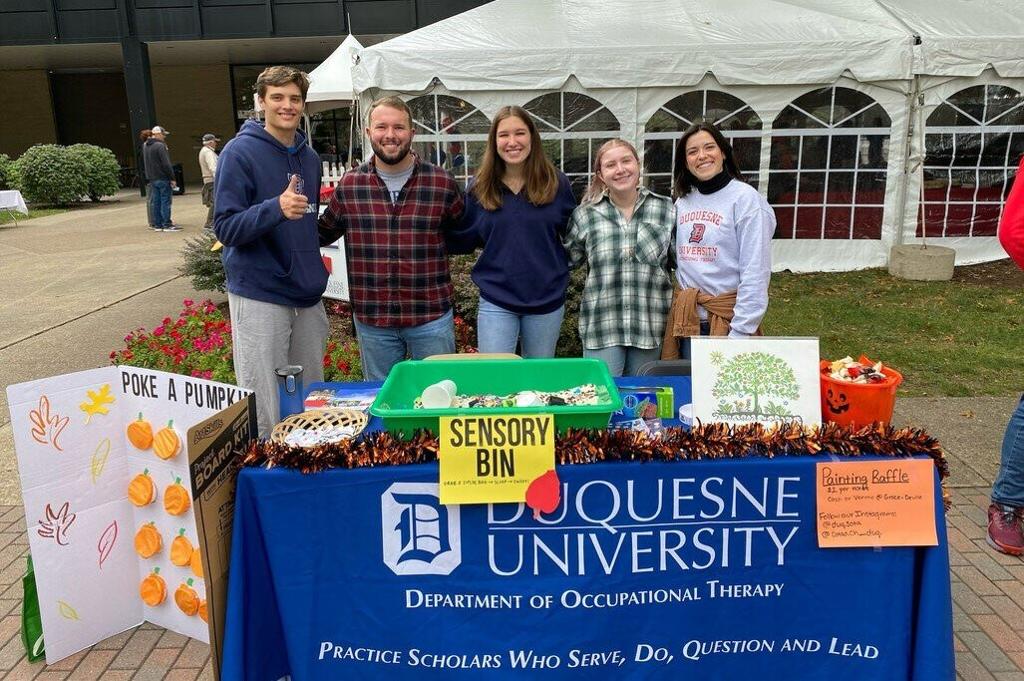
Coalition of Occupational Therapy Advocates for Diversity (COTAD)
Our Duquesne Coalition of Occupational Therapy Advocates for Diversity chapter works to educate and share resources with future occupational therapists on how to fight systemic racism, inequities, and injustices in our health system so that OTs can be more culturally responsive in their support of all clients, communities, and populations. COTAD meets twice a month and creates a safe space for students to reflect on and discuss social justice topics impacting marginalized communities. COTAD aims to create a welcoming environment where students from different life trajectories and cultural backgrounds can meet each other and build connections!
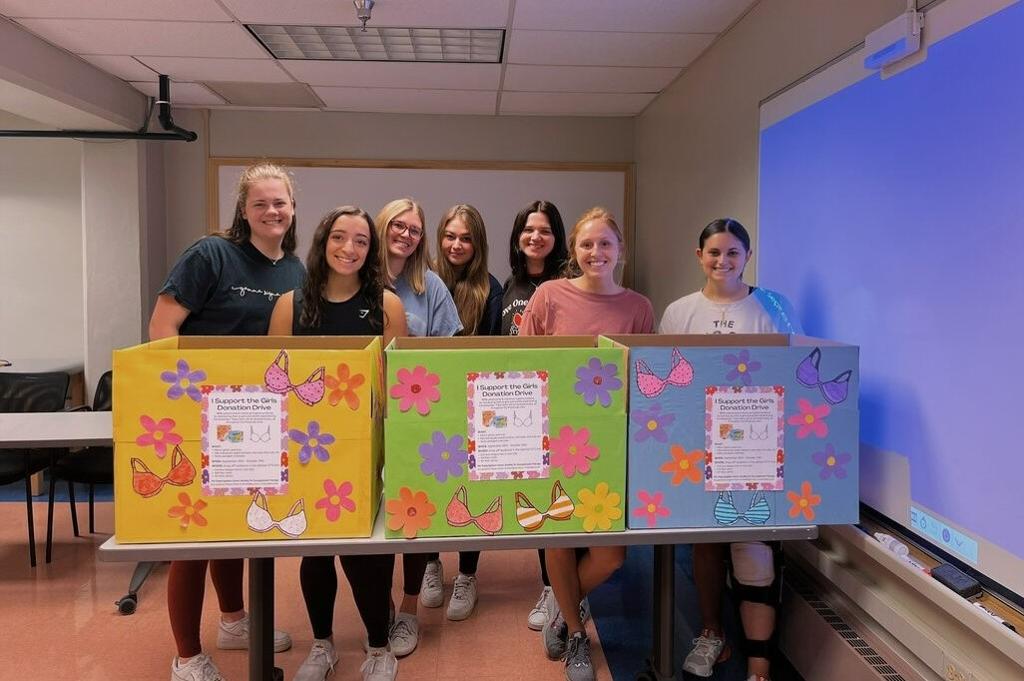
Pi Theta Epsilon (PTE)
Pi Theta Epsilon is the national honor society for occupational therapy students and practitioners. The mission of this organization is “to support the practice of occupational sciences and the practice of authentic occupational therapy by promoting research and other scholarly activities by its members.” Our local chapter, Beta Theta, has engaged in a number of activities to meet this mission. Since 2012, our members have hosted a monthly journal club for students in all cohorts of the OT program. In 2020 and 2021, our chapter collaborated with two chapters from other regions in the country to develop and host an online webinar series on issues of diversity, equity and inclusion and trauma informed care. Our members are constantly identifying and engaging in activities to promote occupational therapy and occupational science.
There are no upcoming events to display for this calendar.Upcoming Events
Still have questions? Reach out to one of our administrative assistants for answers!Contact Us!
Kelly Kovalsky
Melissa Blake



